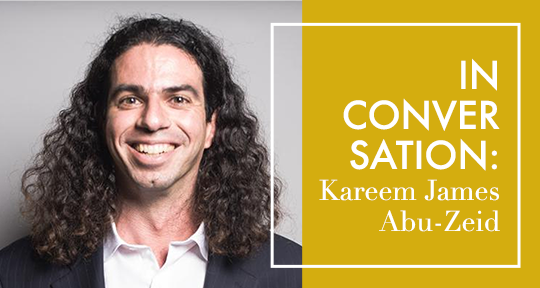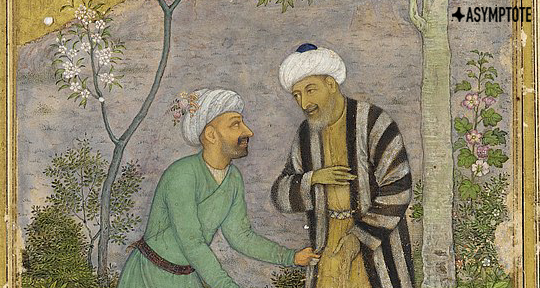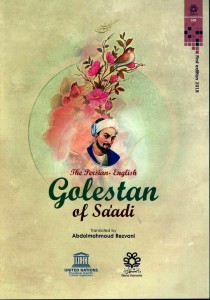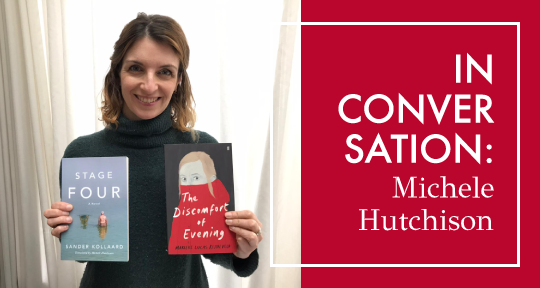Born in Haifa in 1944, Olivia Elias is a poet of the Palestinian diaspora writing in French. During her childhood, she lived as a refugee in Beirut, but later moved to Montreal and then to Paris in the early 1980s. While she started to publish her poetry quite late in comparison to other poets, she has authored several collections since 2013. Her poetry is characterized as precise and rhythmic, and the Palestinian cause is a recurring theme throughout her work. Elias’ poem “Flame of Fire” opens:
I was born
In this
Eruptive time
When my country’s
Name was changed
Though Olivia Elias began writing poetry at a later stage in her life, she quickly gained maturity in the craft. With her third collection, Chaos, Crossing she reached an artistic peak, which has been brought into English in Kareem James Abu-Zeid’s translation. While the collection contains previously published poems, it also features poems which haven’t yet been published in French before. In this interview, Kareem James Abu-Zeid discusses his introduction to Elias’ work, the influences and intricacies of Elias’ poetry, and the process of bringing Chaos, Crossing into English for the first time.
Tuğrul Mende (TM): You studied French literature in the past. Can you tell me what drew you to the subject and what drew you to translate Olivia Elias?
Kareem James Abu-Zeid (KJAZ): It’s funny, because I did study French literature and poetry—French was my major as an undergraduate—but that wasn‘t how I discovered Olivia‘s poetry. She was introduced to me by another Palestinian poet, Najwan Darwish, in May 2020, and I immediately wanted to translate her work.
I wasn’t reading a lot of French poetry at the time, and I was mainly translating Arabic. All of the literary projects I had done up to that point were in Arabic. I do a lot of academic and professional translations from French and from German, but I hadn’t done many literary texts. Up until 2003, when I graduated from college, I was reading a lot of French poetry, but then I began translating Arabic and French literature dropped away a little bit in my translation life. So this project somehow felt like it connected those disparate parts of my life.
TM: What do you do differently when translating from those various languages?
KJAZ: I don’t consciously do anything differently. There are different things that happen and different challenges that arise with different languages, of course. For me, it always starts with understanding the source text, whatever its language. Then, hopefully, you develop a more empathetic connection to the source text, you really connect with it on a deeper level. The goal is to have the translation work as poetry in English.
There are different challenges with each language, and certainly with Arabic. When translating from Arabic to English, for example, the way the two languages work is so different that anything resembling a word-for-word translation is pretty much impossible. You’re forced to get very creative in terms of syntax, rhythm, etc.
With this project in particular, what I noticed is that I felt (for a little while) that I was going to be able to produce a translation that looked, at least on the surface, more like a mirror of the original French. I got lulled into a false sense of security, because the two languages are so close to one another in so many ways. But later on, I realized that the English wasn’t quite ”clicking” in the way I wanted, and that I couldn’t always mimic the French syntax or rhythms, or go with English cognates for French words—I had to step back a bit and really allow myself to recreate the texts as English-language poetry. I learned that there are unique difficulties when the languages are so close to each other as well. There were several times when I thought I had something good in English, and I was pleased, because in many ways it looked very close to the French. But then, when I managed to forget about the source text and just consider the English on its own, I realized that something was definitely sounding a bit “off” in my translation. READ MORE…





A Pointed Atemporality: Mui Poopoksakul on Translating Saneh Sangsuk’s Venom
He's very aware of the rhythm and musicality of this text . . . he said it should take something like an hour and thirty-seven minutes to read.
In our May Book Club selection, a young boy struggles with a snake in the fictional village of Praeknamdang, in a tense battle between beauty and cruelty. In poetic language that is nostalgic for the world it describes without romanticizing it, Saneh Sangsuk creates a complex and captivating world. In this fable-like story there are no simple morals, in keeping with Sangsuk’s resistance to efforts to depict a sanitized view of Thailand and to the idea that the purpose of literature is to create a path to social change. In this interview with translator Mui Poopoksakul, we discuss the role of nature in the text, translating meticulous prose, and the politics of literary criticism.
The Asymptote Book Club aspires to bring the best in translated fiction every month to readers around the world. You can sign up to receive next month’s selection on our website for as little as USD20 per book; once you’re a member, join our Facebook group for exclusive book club discussions and receive invitations to our members-only Zoom interviews with the author or the translator of each title.
Barbara Halla (BH): How did you get into translation, especially given your law background?
Mui Poopoksakul (MP): I actually studied comparative literature as an undergrad, and then in my early twenties, like a lot of people who study the humanities, I felt a little bit like, “Oh, I need to get a ‘real job.’” I went to law school, and I worked at a law firm for about five years, and I liked that job just fine, but it just wasn’t what I wanted to do for the rest of my life.
So, I started thinking, What should I be doing? What do I want to do with myself? I had always wanted to do something in the literary field but didn’t quite have the courage, and I realized that not a lot of Thai literature been translated. I thought, If I can just get one book out, that would be really amazing. So, I went back to grad school. I did an MA in Cultural Translation at the American University of Paris, and The Sad Part Was was my thesis from that program. Because I had done it as my thesis, I felt like I was translating it for something. I wasn’t just producing a sample that might go nowhere.
The whole field was all new to me, so I didn’t know how anything worked. I didn’t even know how many pages a translation sample should be. But then I ended up not having to worry about that because I did the book as my thesis.
BH: You mentioned even just one book, but did you have any authors in mind? Was Saneh Sangsuk one of those authors in your ideal roster?
MP: I wouldn’t say I had a roster, but I did have one author in mind and that was Prabda Yoon, and that really helped me get started, because I wasn’t getting into the field thinking, “I want to translate.” My thought was, “I want to translate this book.” I think that helped me a lot, having a more concrete goal.
READ MORE…
Contributor:- Barbara Halla
; Languages: - English
, - Thai
; Place: - Thailand
; Writers: - Mui Poopoksakul
, - Prabda Yoon
, - Saneh Sangsuk
; Tags: - Deep Vellum
, - environmentalism
, - literary criticism
, - nature
, - nature in storytelling
, - pacing
, - pacing in translation
, - Peirene
, - respect for nature
, - rhythm
, - rhythm in translation
, - social commentary
, - storytelling
, - Thai literature